IT is perhaps destiny that Maria Chin Abdullah ended up being one of the steering committee members for Bersih 2.0, the civil society movement calling for free and fair elections in Malaysia. One of her earliest memories is of independent Malaya’s first general election in 1959 when she was just three.
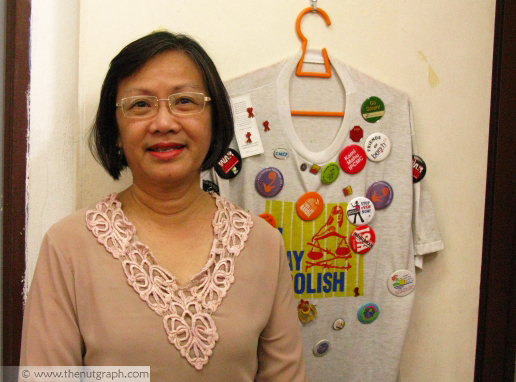
Maria remembers being with her father at what is now known as Dataran Merdeka in the capital. “We were standing there and looking at the election results. I remember my father saying that the opposition was gaining a number of seats against the Alliance, which had as its symbol the boat,” she says in a 24 Aug 2011 interview at her office in Petaling Jaya.
Since that first election, Malaysia’s electoral system has become fraught with issues that have made them less than free or fair. Hence, the 9 July 2011 rally that Bersih 2.0 organised. Maria could not participate in the 50,000-strong rally because she was arrested together with other Bersih leaders.
Still, the whole experience was “life-changing” for her, she says, adding that when she finally found out, at the police station where she was being held, how many people turned up, she was elated. “We never thought we could pull it off!”
Maria has been involved in women’s and human rights work since 1985. When the government crackdown known as Operasi Lalang happened in 1987, she decided then that being in the corporate sector was not her cup of tea, and her commitment to non-governmental organisation work strengthened further.
For the most part, she has worked on gender, development and democracy issues in women’s rights groups such as the All Women Action Society, the Women’s Centre for Change, the Women’s Development Collective, and now Empower, which is the secretariat for Bersih 2.0.
It was when Bersih was relaunched as Bersih 2.0 in November 2010 – a movement led solely by civil society – that Maria began to be at the forefront of the calls for electoral reform. Apart from Bersih 2.0 chairperson Datuk Ambiga Sreenevasan, Maria is the only other woman on the steering committee.
In this interview, Maria talks about her family’s Hakka-Cantonese ancestry and growing up in a tin-mining family in Perak where males were treated as more special than females. She also talks about how the Bersih 2.0 rally shows that racial politics no longer has any traction among citizens, especially younger Malaysians.
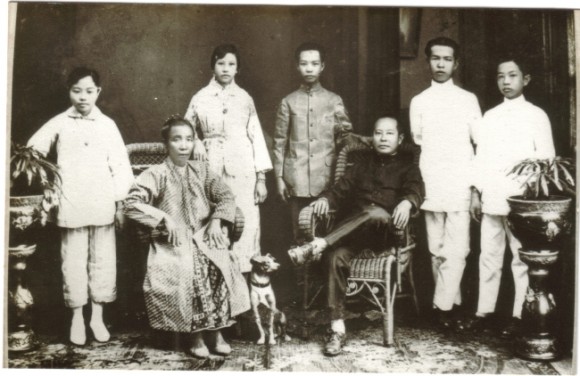
TNG: When and where were you born, and where did you grow up?
I was born in Paddington, London in the UK in 1956. My parents were the privileged ones who made it to the UK to study. My mother did hairdressing and my father studied engineering at Imperial College.
They came back immediately [after they were done] and we went to Singapore, where my father worked with the government. When the separation (between Malaysia and Singapore) happened (in 1965), he had to return to Peninsular Malaysia.
[I grew up mainly] in Petaling Jaya (PJ). But because my father was a government servant (with the Public Works Department), we’ve lived in Seremban, Klang, Kuala Lumpur and Ipoh.
Can you trace your ancestry?
All of them – [my paternal] grandparents and granduncles, even my great-grandfather and great-grandmother – came from southern China from a Hakka village called Chin. They came as dulang washers and became tin miners. I grew up in a tin-mine environment, spending most of my school holidays in my paternal grandparents’ house in Kampar.
My mother’s side, which is Cantonese, was also in the tin-mining business in Menglembu (in Perak).
My paternal great-grandfather actually had two wives. One was from Thailand. My great-grandmother, his other wife from China, was alive until she was 99 years old. I remember playing the card game Fishing with her in Kampar.
My grandmother was actually sold as a wife, and that’s how she came from China to Malaya to marry my grandfather. The belief at the time was that if you wanted [to conceive] a male [child], you gave away your female child. The thinking then was very traditional in that the boys were most important.
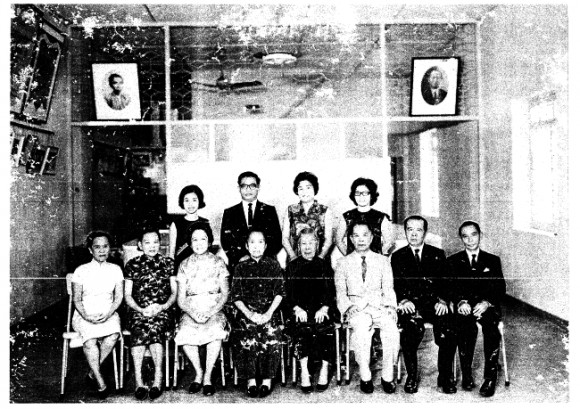
During the school holidays, special food like birds’ nest and chicken legs would be for the boys only. We didn’t feel anything then because we were so small. But now, upon reflection, that was real discrimination. It was a very patriarchal family. Whenever we ate together, the boys would eat at one table and the girls and women would be at a separate table. The men would sit at the main table.
Because we came from this tin-mining background, three families stayed together. There was my grandfather, who was the eldest, then the second granduncle and the fourth one. There were about 30 people staying in the same house. About 20 of us cousins grew up in that house. We spent our holidays going early in the morning to the tin mine.
There were three patriarchs in my father’s family, but it wasn’t the three men who controlled the money. It was actually my grandmother who was very fierce. She was able to ensure that everyone was well-fed and educated. She was unique in that sense. She was in charge of their tin-mining business, but she knew where she was in the male hierarchy and maintained that.
And your dad was born in Malaya?
Yes. My mother’s side also came from China. She was born in China. She came over and didn’t have any IC or birth certificate for many years until she was about to go overseas. She doesn’t even know which year exactly she was born in. But at that time, the registrar would register whatever year you told them. So, that’s how she got her birth certificate from Malaya.
So, you would be second-generation Malaysian from your father’s side and first-generation on your mother’s side?
Yes.
Did you speak Hakka and Cantonese when you were growing up?
Yes. I learnt Hakka from my father’s side and Cantonese from my mother.
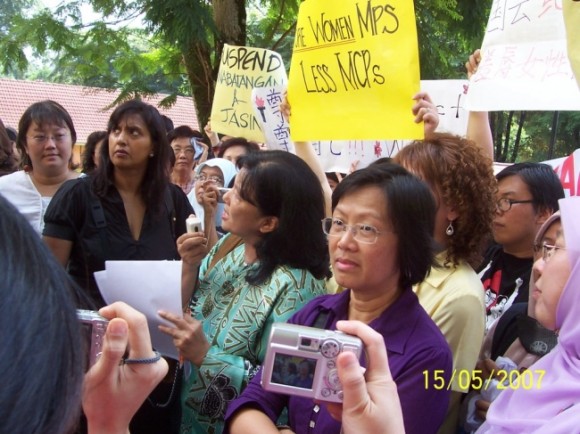
Do you have any particular strong memory growing up that you think about today and say, “Oh, this is what being Malaysian is about”?
I think the memory was when I first witnessed the elections just after Independence when my father brought me to Dataran Merdeka. That time it wasn’t called Dataran Merdeka yet. We were standing there and looking at the election results.
I remember my father saying that the opposition was gaining a number of seats against the Alliance, which had as its symbol the boat. And I remember thinking, “Oh. People do vote ah?” (Laughs) That really struck me.
The other thing I remember was 13 May. I was 13 at that time. I was in PJ. The riots happened in KL and we could see the smoke from where we stayed because we were quite near the Federal Highway. I think we were under curfew for six weeks or more in the house. We couldn’t go out. We had an uncle who was with the Special Branch. He brought food for us.
Prior to 13 May, we had a gang of friends and we usually went to each other’s house, regardless of our race and religion. I think 13 May actually eliminated a lot of that unconstrained friendship. Even though there was this call for muhibbah, I started to question, “What is the meaning of being Malaysian?”
Was that when you first became conscious of race?
Yes. I think 13 May actually made you think, “Oh, there is this segregation.” Because prior to that, there was no problem in terms of eating places getting mixed up. You would have a Malay hawker selling in a Chinese coffee shop. One noticeable change after 13 May was when the food shops started segregating.
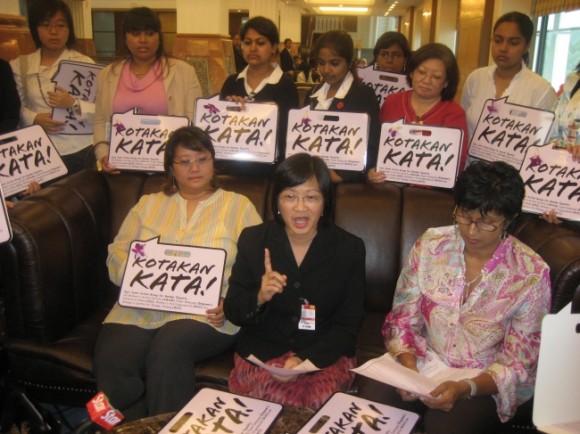
The other thing was the NEP (New Economic Policy), where in its implementation, it failed to provide fair and just opportunities for all Malaysian students. In the 1970s and 80s, discrimination was felt in the quotas set in overseas scholarships. This did not help foster greater trust among the overseas Malaysians and was perceived as racial discrimination.
Being part of the Malaysian and Singaporean students’ movement in the UK, we tried to raise awareness among Malaysian students. We wanted students to be more aware of the political situation in Malaysia and to feel that they had a role to play when they returned home.
Is being a Chinese Muslim convert problematic for you in any way? Do you find that people assume that you’re not Muslim just because you’re Chinese?
Not really. I have been a Muslim for more than 20 years. My [late] husband, Yunus Ali, was very supportive, and I must say that he never made me feel uncomfortable being a convert. Neither did his family members or friends.
However, I still have people asking me, purely out of curiosity, if I am a Muslim when they read my name or see me with my sons. I am a Chinese [Malaysian] and look like one, and do not often dress in baju kurung, and [don’t wear the] tudung. I guess it’s about perception and stereotypes.
My involvement with Bersih 2.0 crossed those barriers. The issue was never raised as problematic. Race, gender and age were not the barriers – we worked well and cohesively for a cause.
And your children are also clearly Muslim?
Yes, my three boys are.
Under racial category, they’re Malay?
Yes (laughs). They are Malay, I’m Chinese. They are the bumiputra, I’m not (laughs). It’s really funny, huh?
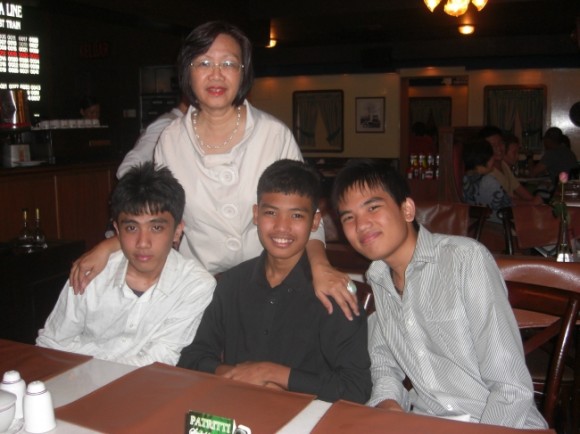
Did the Bersih 2.0 rally on 9 July change anything for you with regard to your perception of race relations in the country?
Definitely! People came, and it says a lot. Because despite the government saying Bersih 2.0 would cause racial riots and bloodshed almost like 13 May – that we were Christian, Jewish and all kinds of other nonsense – the people didn’t listen to those lies and believed instead in the need for change.
The rally proved a point. It was multiracial. It showed that people do know how to make up their minds about the truth, and they have gone beyond the government’s divisive politics and the use of fear tactics to scare people into submission. The people can see it’s not about race. It’s about electoral reform and asserting their democratic rights.
Describe the kind of Malaysia you would like for yourself and future generations.
From 9 July, I see a lot of potential and enthusiasm in young people. I feel they can actually decide on a lot of the social issues in this country, and they should. The young and Malaysians in general do know what they want for this country.
Definitely our future will not be about using race relations or fear, and hopefully it will not be about using religion to divide us. Politicising race is probably not the politics of the young anymore. Their politics is defining Malaysian politics and their love for their country. I feel they are becoming more politically aware, and 9 July gave them the opportunity to come out and have a say in Malaysia’s future. ![]()
The book Found in Malaysia Volume 2, which was launched on Malaysia Day 2011, is now available in bookstores for RM50. It features previously unpublished interviews with Asha Gill, Lillian Too, Khairy Jamaluddin and Baru Bian. Volume 1 of Found in Malaysia, featuring 54 earlier interviews, is currently in its second print run and retailing at RM45.


Kong Kek Kuat says
@ Maria Chin Abdullah
Three questions:
1. Did you let your children participate in Bersih 2.0? I´m not talking about merely being involved in the planning stage.
2. Did your children take advantage of any of the bumiputera “privileges”?
3. What is your opinion of Ridhuan Tee Abdullah?
Adam says
Keep up the good work, Puan Maria. It is indeed honourable to strive for justice and fairness for all. And your husband must be very proud of you too for bringing up the three boys to be citizens of the world.
I agree with you wholeheartedly, it is indeed not about race anymore; also not about which religion, either. This brings to mind a line written by Thomas Paine: “My country is the world and my religion is to do good.”